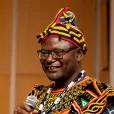United Kingdom
Learn more about the United Kingdom, one of the destinations for U.S. educators through the Fulbright Distinguished Awards in Teaching Research Program.
3 to 6 months
United Kingdom
None
51.509865, -0.118092
Placement Information
- Partner Organization: US-UK Fulbright Commission
- Eligible Program Dates: 3-6 months between January – September 2026
- Host Institution Expectations: Participants in the UK are hosted by specific partner universities. These include:
Applicants are encouraged to research these different universities and indicate any preferences in the “Research Project Proposal” section of their application. Indicating a preference is optional and will not impact the selection process. Please note that the U.S.-U.K. Fulbright Commission is unable to place teachers at non-partner institutions.
- Language Requirement: None
- Monthly Allowance: $4,200 - $4,500 (exact amount to be confirmed at a later date)
- Dependent Information: An allowance of $2,000 per eligible dependent will be provided as part of the Fulbright award. Participants will travel on a Temporary Worker – Government Authorized Exchange visa sponsored by the U.S.-U.K. Fulbright Commission. Dependents will travel as Temporary Worker dependents. Dependent children can be enrolled in U.K. schools. For more information on schools in the U.K., please see: https://www.gov.uk/types-of-school. Please note that tuition support for dependents is subject to availability and requests for funding are reviewed on a case-by-case basis. Applicants are strongly encouraged to research schooling options for their dependents during the application phase.
Country Overview
The U.K. has participated in the Fulbright program since 1948 and there are strong relationships between the U.K. and the U.S. With its many countries, regions, and dependencies, the United Kingdom is a vibrant environment to research and study in. This YouTube video is an excellent tool for understanding the many realms and territories that make up the U.K.
Daily life in the U.K. can vary between large metropolitan cities like London, Belfast, or Glasgow, and smaller towns and rural areas. Larger cities tend to be multicultural, reflecting diverse histories of immigration to the U.K. Once in the U.K., it is easy to travel around the country and experience the unique identities of each region.
The U.K. has a strong cultural scene, and grantees in the U.K. often take advantage of opportunities to experience its arts, music, and history, as well as its natural beauty and thousands of miles of coastline.
Educational System Overview
Education in the United Kingdom is devolved with each of the countries of the United Kingdom having separate systems under different national governments. The U.K. Government is responsible for England, and the Scottish Government, the Welsh Government, and the Northern Ireland Executive are responsible for Scotland, Wales, and Northern Ireland respectively. Within these separate systems, students study for different qualifications at different stages of their education, and they typically make choices about the subjects they will study much earlier than students would in the U.S. Education is compulsory until age 18, and both academic and vocational subjects may be studied as part of a student’s secondary education.
Possible Topics of Interest for U.S. Educators
The following topics have been identified by the partner universities as areas of particular interest that may be relevant to U.S. educators, although applicants should not feel limited to these areas of research.
- Education and provisions for students with diverse learning needs.
- Multilingual education, including: TESOL, English as an Additional Language, provisions and education in other U.K. languages.
- Student wellbeing and mental health support in schools.
- Education in under-resourced areas and the "attainment gap"
- Teacher training, development, retention, and educational leadership.
- Sustainability and STEM education.
The following topics reflect distinct U.K. educational policies and provide opportunities for specialist case studies, studying “best practices”, or investigating current challenges.
- Cooperation and collaboration between schools, including local and national networks of schools.
- The role of schools in teacher education.
- Subject choice and the impacts of different U.K. academic and vocational qualification systems.
- The impacts of the Pupil Premium funding model in England.
- Curriculum design across the U.K.
- Formative assessment implementation and practice (e.g. Assessment for Learning).
- School leadership, including qualifications and the development of system leaders (e.g. National Professional Qualification for Middle Leadership).





